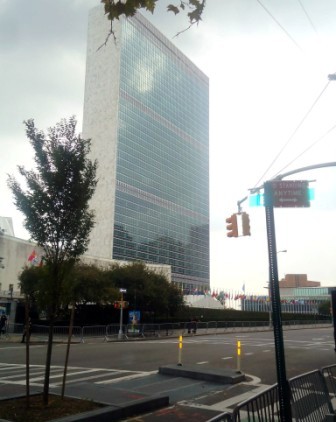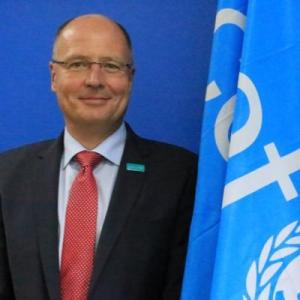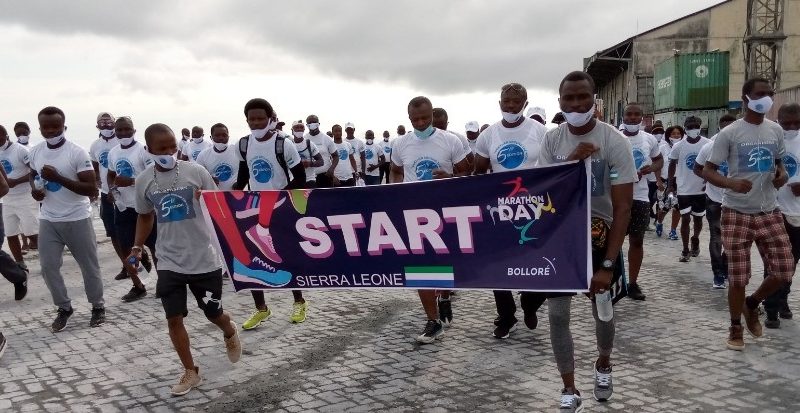UNICEF and UN-Women hold consultation on addressing global inequalities
In a multi-pronged effort to combat inequalities, the United Nations Children’s Fund (UNICEF) and the United Nations Entity for Gender Equality and the Empowerment of Women (UN-Women) with support from the Governments of Denmark and Ghana held a joint Civil Society/UN briefing on “The global consultation on addressing inequalities in the post-2015 development agenda” at the UN Headquarters in New York. (UN building, New York, USA)
Officials say the primary objective of Monday’s consultation is to stimulate a varied global discussion on the different forms of inequalities through what they call open and inclusive conversation for civil society, academia, governments and the UN and present main findings to key decision-makers and leaders to inform the post-2015 development framework.
Ambassador Carsten Staur –Permanent Representative of Denmark to the United Nations hosted Monday’s briefing which he said was the first of 11 rounds of intensive global consultations on a number of thematic issues that are pertinent to the post 2015 development agenda that will take place over the next few months. He went on to say the Draft Report on the Global Thematic Consultation on Inequalities is being finalized and will be discussed further at the upcoming high-level Leadership Meeting to be held from February 18 – 19, 2013 in Copenhagen, Denmark.
In his 10 minute statement on behalf of UNICEF and UN Women, Senior Advisor Richard Morgan in the UNICEF Executive Office cited key findings of two areas of the four components of the draft report on the Global Thematic Consultation on Inequalities released in January this year. He said the consultations first component includes papers on inequalities in which they received about 175 written submissions many of them research and analytical pieces from all parts of the world both from individuals and institutions. A significant number of the papers focus on gender related inequalities, and represent perspectives from civil society and academia, both from the South and the North.
According to Morgan, the bedrock of the consultation lies in two things: first an advisory group that was put together in July/August which constitutes 20 members including a number of civil society organizations. And, the many inputs they have received on the second pillar of the consultation which is the webpage at worldwewant2015.org
Morgan also told participants that a total of 3420 individuals registered, and 34,500 individuals visited the inequalities space since its launch. They have held 10 e-discussions, virtual discussions on different aspects of inequalities as a way to deal with the complexity of the issues in looking at the different dimensions of inequalities, and, how the issues can be tackled in the context of the 2015 development agenda.
During the question and answer phase of the briefing, participants called for the dire need to address the linkages between economic, social, gender based violence and discrimination and the environmental aspects of inequalities – including the impacts of climate change on vulnerable groups in places like the Solomon Islands – in the post-2015 agenda.
Attorney Ugoji A. Eze Founder/President and CEO of Eng Aja Eze Foundation, a NGO which focuses on transforming the global Women, Peace and Security Agenda into a reality for women and children in pre- and post-conflict zones, argued during the question-and-answer session that there hasn’t been an extensive research on the impact that wars and conflicts have on the set development goals. Attorney Eze emphasized “it really begs two questions, firstly, what is the negative impact of conflicts on development outcomes and secondly to what extent is the gap between conflict countries and other countries as a direct result of the conflicts?”
Voicing her observations on global inequalities for this story, Mariama Cire Keita, a Guinean-American, Communications strategist and native New Yorker said as a member of the Guinean Diaspora and advocate for the empowerment of women and girls globally, it is evident that there is no country in the world including the United States that treats its women as equals to men.
Ms Keita says she is concerned of “how can the UN resolution 1325, adopted by the Security Council on October 31, 2000 turn from theory into practice that benefits intergenerational women in African nations in fragile and new democracies like the Republic of Guinea?”
“Drawing inspiration from 21st century African women leader icons: Liberia’s first elected female President Sirleaf Johnson and grass roots activist Leymar Gbowee responsible for ending Liberia’s 14-year war,” Keita said “is an example of a holistic approach in transforming a nation. The concentrated efforts of sub-regional actors like Femme Africa Solidarite (FAS) and MARWOPNET remain instrumental in motivating, pressuring and enforcing agenda’s that benefit African societies and women.”
According to the draft report, inequalities exist both within and between countries, and in developed and developing ones. Globally, inequalities have been on the rise since the 1980s. Preliminary findings from the consultations suggest inequalities result from structural barriers in economic, social, environmental and political domains, and also that inequalities themselves are structural barriers for inclusive development. The final consultation will climax in April at events that the government of Norway is organizing together with a number of partner countries including Mexico and Tanzania.
By Dennis Kabatto
Stay with Sierra Express Media, for your trusted place in news!
© 2013, https:. All rights reserved.






